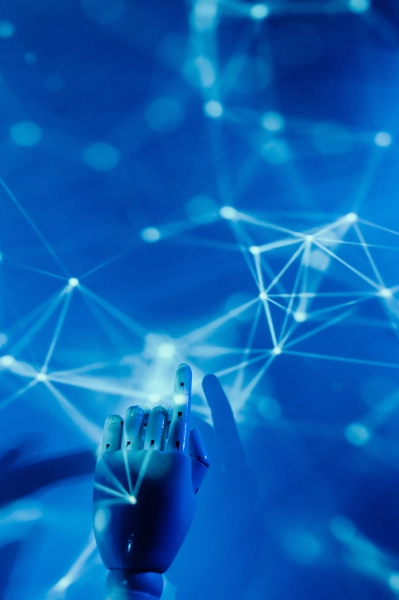Cassyworld
Buying And Selling : Am A Digital Marketer, A Web Designer, A Copywriter, And A Coach. I Love Meeting New People And Exchanging Ideas. Growing Your Business Is My Hobby
Wants to meet Marketers : I Love Meeting People Who Are Goal-oriented
Articles
3
Followers
2
profile/6209IMG_20191021_101930.jpg
Cassyworld

IMPORTANCE OF AI TO HUMAN
~2.7 mins read
Artificial Intelligence (AI) is a rapidly evolving technology that has already had a profound impact on the way humans live and work.
AI is a branch of computer science that deals with the creation of intelligent machines that can perform tasks that typically require human intelligence.
From self-driving cars to smart home devices, AI has already begun to change the way we interact with technology, and its potential to transform human life is immense.
One of the most important benefits of AI is that it can automate many routine and repetitive tasks, freeing up humans to focus on more creative and complex work.
For example, machine learning algorithms can be used to automate the process of data analysis, freeing up data scientists to focus on higher-level tasks such as model development and interpretation.
AI systems can also be trained to perform complex calculations, such as simulations and predictions, much faster and more accurately than humans, leading to significant time and cost savings.
Another important benefit of AI is that it has the potential to greatly enhance human decision-making.
AI algorithms can be trained to analyze vast amounts of data, identify patterns, and make predictions about future events.
This can be particularly useful in fields such as finance, where AI systems can be used to analyze market trends and make informed investment decisions, or in healthcare, where AI systems can be used to analyze medical images and assist with diagnoses.
AI also has the potential to transform many industries, creating new products and services, and improving existing ones.
For example, AI-powered robots can be used in manufacturing to perform repetitive and dangerous tasks, increasing efficiency and safety.
AI systems can also be used in customer service, providing quick and accurate answers to customer inquiries, improving customer satisfaction and reducing costs.
Moreover, AI has the potential to greatly improve access to education and healthcare.
For example, AI-powered tutoring systems can provide personalized instruction to students, regardless of their location or ability level.
In healthcare, AI systems can be used to analyze vast amounts of medical data and provide doctors with insights and recommendations, leading to improved patient outcomes.
Despite these benefits, there are also concerns about the impact of AI on society and the workforce.
Some worry that AI systems will replace human workers, leading to widespread job losses and increased income inequality.
There are also concerns about the potential for AI systems to be used for malicious purposes, such as cyberattacks or autonomous weapons.
To address these concerns, it is important to consider the ethical and social implications of AI as the technology continues to develop.
This includes ensuring that AI systems are designed and implemented in a way that respects privacy, security, and human dignity.
It also requires developing and enforcing policies to regulate the use of AI, such as data protection laws and ethical guidelines for AI development.
In conclusion, AI is a rapidly evolving technology that has the potential to greatly benefit humanity.
However, it is important to carefully consider the ethical and social implications of AI and to ensure that it is developed and used in a responsible and sustainable way.
By doing so, we can reap the benefits of AI while avoiding its potential downsides and ensuring a positive future for all.
Advertisement

Link socials
Matches
Loading...
